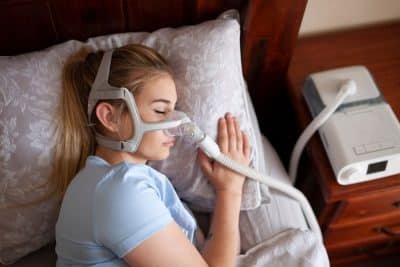Insomnia is a common sleep problem. It can be short-term (lasting a few days to weeks) or chronic.
The causes of insomnia vary, but emotional issues like stress, anxiety, and depression are often involved. Medical conditions and medications can also contribute. Zopiclone 10 mg medication and Medical conditions can also contribute.
Insomnia is a common problem, and effective treatment can make a huge difference. Fortunately, there are many non tablet insomnia treatments available. These treatments can be safe and effective, and they don’t have the side effects of prescription medications. You can find out more about these and other non-tablet options for treating insomnia on our Insomnia page.
Physiotherapy
Physiotherapy is a type of treatment that can help to improve your quality of life. This is because physiotherapists take a holistic approach to treating a patient, rather than focusing on one aspect of their injury or illness.
Typically, physiotherapists will use manual therapy techniques to help with movement and function. These can include stretching, soft tissue techniques, and joint mobilization.
In addition, physiotherapists may also use acupuncture or other therapies. This can be useful for pain relief as well as for reducing inflammation.
Sleep is critical to the health and physiotherapists should regularly assess their patients for the impact of physical conditions on their overall sleep quality and sleep health.
Medications
Sleep-disordered breathing is a complex condition that requires expert assessment and treatment. A diagnosis is made by a sleep physician or a sleep specialist who assesses your sleeping patterns and examines you for medical conditions that may be contributing to your insomnia.
Zopiclone 7.5 MG medications have been shown to reduce the symptoms of insomnia in patients with sleep-disordered breathing. These include antidepressants, antipsychotics, and benzodiazepines.
Another medication that can be used to treat insomnia is an orexin receptor antagonist. This tablet can be a good option for people who have a hard time falling asleep or staying asleep because it acts as a sedative.
Medications for insomnia are often prescribed to complement behavioral interventions and improve your quality of sleep. Depending on the specific type of insomnia you have, your doctor may prescribe over-the-counter medicines, prescription medications, or a combination of these.
Psychotherapy
Psychotherapy is a type of counseling that helps people learn how to deal with emotional issues. Often, psychotherapy involves intense emotions and discussions that may leave you feeling emotionally or physically tired after a session.
Many licensed psychologists and other health care professionals offer psychotherapy. These include psychiatrists, counselors, social workers, and nurses.
Some of these professionals have specialized training in sleep disorders and can work individually with patients or in groups to help them get better sleep. They may also be able to give you advice on lifestyle changes that can help you sleep better.
If you decide to seek psychotherapy, it is important that you find a professional you feel comfortable with. Interviewing potential therapists by phone or video can help you determine whether they are the right fit for you. It is also helpful to ask about the number of sessions they will provide and their fees.
If your body is unable to adequately pump oxygen into your blood, you may experience shortness of breath. Your lungs may be unable to process oxygen intake, or your heart may be unable to effectively pump blood.
Chronic shortness of breath occurs when the symptom persists for more than a month. Approximately 85% of the conditions that cause chronic shortness of breath are related to your lungs, heart, or mental health.
Shortness of breath when lying down is referred to as orthopnea. It is known as paroxysmal nocturnal dyspnea when it occurs after a few hours of sleep.
Specialists in sleep medicine typically treat insomnia using talk therapy designed to dispel people’s false, frequently unconscious beliefs about sleeping. They include approaching the bed with performance anxiety and viewing sleep as an exercise in frustration. Moreover, medications can be helpful, but they rarely fix the underlying issues.
Surgery
Surgery can help some people with sleep-disordered breathing (SDB) who cannot get a good night’s rest. It’s important to understand all the risks and benefits before agreeing to surgery.
Surgery is often the last resort for people who have tried other options to treat their sleep apnea or snoring problems. Your doctor will talk to you about your options, and you may be asked to sign a form giving you informed consent.
Your doctor will also ask you if you have any fears about the surgery. If you do, they may prescribe anti-anxiety medication to take before the operation.
After the procedure, you’ll go to a recovery room where nurses will watch your condition closely for several hours. Your parents can visit you there, too.
Many people with sleep apnea and snoring find that surgery is a helpful insomnia treatment. However, some people do not benefit from surgery.



